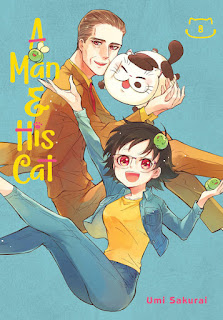The Secret
History, by Donna Tartt. Vintage Contemporaries, 1992.
This is a kind
of strange book. I picked it up because I read that it’s the foundation of the
‘dark academia’ strain of books. Sadly, it did not have any supernatural
aspects to it, but it was very, very dark.
Richard Papen
is our narrator. He is from California, in an area where there are no cultural
enrichments available (in Richard’s opinion). His father expects him to go into
his boring-as-can- be business, and so will fund him going to a local college
to get a business degree. Richard has different ideas; his forte is languages,
particularly dead languages. He wants to go to an eastern college, where ivy
climbs the walls and the classics are studied. He applies to Hampden College,
and, surprisingly, gets a scholarship- which doesn’t go very far to pay the
bills other than tuition.
Shortly after
arriving, he sees a group of students who are different from the rest. They are
dressed expensively and somewhat eccentrically, they don’t go to the popular
places on campus, they are always together, frequently with the professor of
Greek. They pique his interest; he feels he is meant to be a part of their
group, although they seem unapproachable and decidedly better than any
others on campus. He applies for entry in the Greek classes; the charismatic
older professor turns him down. On a second try, he is accepted into the lofty
company of the 5 who are the only students in the Greek classes.
The group members
are upper class, well-funded, intellectual, and snobby. Twins Camille and
Charles, fey Francis, tightly wound Henry, and Bunny, who is always short of
money and forever getting the other four to pay his way. (I swear this
character would be played by Vince Vaughn if this were made into a movie)
Richard almost immediately invents a life for himself, wherein he, too, is also
from wealth and culture. He finds as job on campus, which gives him enough
money to survive during term- barely- and not at all during winter break. His
fake biography and facility with ancient Greek get him past the rarefied group’s
cursory inspection and he finds himself included in their get- togethers and
antics.
At the start of
the novel we are given the information that they have committed murder. This is
not a spoiler; this is where Richard pretty much starts with his narration. It
turns out the murder was an accident, but they go to lengths to hide it. When
one of their number, Bunny, discovers this, he threatens to go to the police
and the group decides to commit premeditated murder-and insist that Richard
(who had nothing to do with the first death, and was not even part of the group
at the time) take part in it. Therein ensues the core of the book, the
disintegration of the Greek students, both personally and as a group. It’s
painful to watch. Very painful.
This is a very
long book, but Tartt’s prose carried me along effortlessly, even in the painful
sections. And that’s a good thing, because the characters are… thinly
portrayed. There are no souls behind the window dressing of their elitism. There
isn’t really a lot of plot- there are a few events, and a lot about how the characters
react to them. In the end, the secret society of elite intellectuals is nothing
more than teenagers trying on guises and finding out that there are real world consequences
to their actions. Did I enjoy the book? Yes, I did. Despite its weak spots, I
couldn’t put the gigantic thing down. I just had to see what those kids did next-
and the ending did have quite a surprise.



